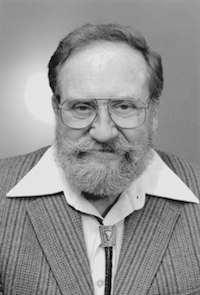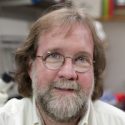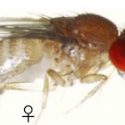In memoriam: Ray D. Owen discovered immune tolerance, paved the way for organ transplantation
The Guernsey calves were twins, but they had different fathers — the proper Guernsey and a Hereford that had jumped the fence. That much Ray Owen understood. He’d grown up on a Wisconsin dairy farm. He knew that an amorous cow could attract more than one suitor.
The surprise was that each of the nonidentical twins had two kinds of blood cells, its own and those of its twin. In ordinary transfusions, that kind of mixing of blood cells often triggers a severe immunological reaction, but these calves were doing just fine. Owen, a young University of Wisconsin–Madison assistant professor of genetics at the time, set out to explain this. What he learned was that when blood cells are exchanged early in development, each twin learns to tolerate the other’s cells.

Ray Owen
Owen, who died on Sept. 21 in Pasadena, California, at the age of 98, had discovered the phenomenon of immune tolerance, fueling a revolution in immunology and laying the foundation for the successful transplantation of human organs.
His findings, published in 1945, paved the way for research involving induction of immune tolerance to transplanted tissue grafts by Frank Burnet and Peter Medawar. When those scientists received the Nobel Prize for that work in 1960, they were quick to point out that Owen’s discovery had set them on their way.
Almost 70 years later, Owen’s legacy continues to loom large in the field of organ transplantation, says Dr. Dixon Kaufman, the Ray D. Owen Professor of Surgery and chairman of the transplantation division at the UW School of Medicine and Public Health.
“What he discovered still serves as a beacon and a compass guiding us in the direction in which we believe new breakthroughs in organ transplantation can take place,” Kaufman says. “He made some very important observations on how an individual’s immune system can be modified by cells from another individual, which would allow organs to be transplanted without the need for the immunosuppressive agents that we currently rely on.
“We are engaged in a large NIH-sponsored research project studying how to do kidney transplants in larger animals based on the foundation that he set, and we’re planning to move ahead in the near future with human pilot studies. It seems very appropriate that we’re doing that work based on what Ray Owen discovered when he was here.”
David Owen, Ray’s son, says that his father’s rural upbringing influenced his career in many ways — his work ethic, his skill at working with animals, and his support for women, minorities and others who faced undue obstacles on the path to careers in science.
Owen left Madison in 1947 to join the faculty at Caltech, where he remained for the rest of his long, distinguished career. His later work included studies on human antibodies, blood-group antigens, and the evolution of immune systems. He held several key administrative roles at Caltech, including chairman of the Division of Biology, vice president for student affairs and dean of students. He was a member of the National Academy of Sciences, the American Academy of Arts and Sciences, and the American Philosophical Society, and received many other professional awards and honors. Owen co-authored General Genetics, the leading genetics textbook of its time. He also was noted for his dedicated teaching and his extraordinary commitment to mentoring young scientists. He chaired the committee that spearheaded the effort to admit the first women undergraduate students to Caltech in 1970.
Owen was born in 1915 on a dairy farm in Genesee, Wisconsin. He commuted to Waukesha to attend high school, and later, Carroll College, before going on to earn a Ph.D. in genetics at UW–Madison.
David Owen, Ray’s son, says that his father’s rural upbringing influenced his career in many ways — his work ethic, his skill at working with animals, and his support for women, minorities and others who faced undue obstacles on the path to careers in science.
“It was the Depression and he didn’t have much money. He got up at 5 a.m. and milked cows before and after class when he went to Waukesha High School and before and after his college classes,” David Owen says. “He knew that talented people come from all backgrounds.”
Tags: biology, biosciences, genetics, obituaries


